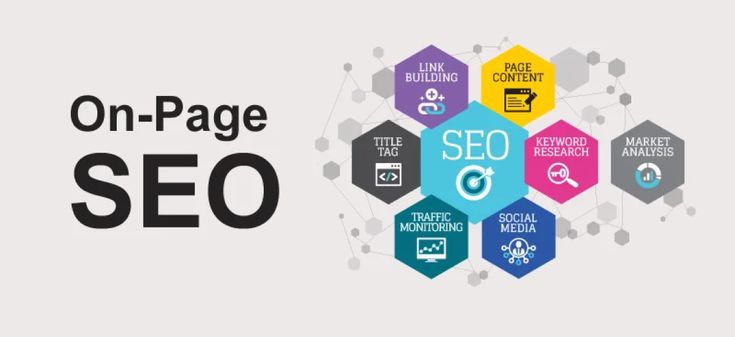Easy-to-use off-page SEO tools to improve your Google rankings
🚀 What is Off-Page SEO?
Off-Page SEO refers to all optimization techniques that occur outside your website to improve its position in search engine results pages (SERPs).
Key goal:
Build authority, trust, and relevance for your website through external signals.
Examples:
-
Backlinks (link building)
-
Social media signals
-
Brand mentions
-
Influencer marketing
-
Guest blogging
📈 Why Off-Page SEO is Important
Search engines like Google use over 200 factors to rank content. One of the most powerful is how other sites refer to you.
-
💡 Think of backlinks as votes of confidence.
The more quality votes (links) you get, the more trustworthy your site looks.
-
Off-Page SEO helps:
-
Increase domain authority
-
Drive referral traffic
-
Build brand awareness
-
Improve SERP rankings
-
🛠️ Key Off-Page SEO Techniques (2025)
1. 🔗 Link Building (Backlinks)
The backbone of off-page SEO.
High-quality backlinks = higher rankings.
Not all links are equal. Prioritize:
-
Do-follow links from authoritative websites
-
Contextual links (placed within content)
-
Relevant industry sites
💡 Tools: Ahrefs, SEMrush, Moz, Ubersuggest
Link Building Methods:
-
Guest blogging
-
Broken link building
-
Skyscraper technique
-
Resource page outreach
2. 📱 Social Media Engagement
Social shares affect visibility and engagement even though they aren't direct ranking factors.
-
Post content on social media sites like X (Twitter), Facebook, Instagram, and LinkedIn.
-
Use relevant hashtags
-
Encourage user interaction
-
Build community through comments and DMs
Pro Tip: Viral content can attract natural backlinks.
3. 🗣️ Influencer Marketing & Brand Mentions
Collaborate with influencers or niche bloggers to get:
-
Brand mentions
-
Reviews
-
Shout-outs
-
These unlinked mentions still act as trust signals.
4. 📝 Guest Blogging
Writing for other high-authority websites helps you:
-
Gain backlinks
-
Reach new audiences
-
Establish thought leadership
5. 💬 Blog Commenting & Forums
Engaging in blog discussions or forums like Quora, Reddit, or niche communities can:
-
Bring referral traffic
-
Build relationships
-
Showcase expertise
➡️ Always add value; don’t spam with links.
6. 🏢 Local SEO & Business Listings
For local businesses, this is critical.
-
Create a Google Business Profile
-
Submit to local directories (JustDial, Sulekha, Yelp, etc.)
-
Maintain NAP consistency (Name, Address, Phone)
Encourage satisfied customers to leave positive reviews.
7. 🎥 Content Marketing & Visual Sharing
Create shareable content:
-
Infographics
-
Videos (YouTube SEO)
-
Podcasts
-
PDFs & ebooks
🔗 Share them on SlideShare, Medium, Pinterest, LinkedIn.
⚖️ White Hat vs Black Hat Off-Page SEO
|
White Hat Techniques |
Black Hat Techniques |
|
Guest Posting |
Buying Links |
|
Social Media Sharing |
Link Farms |
|
Natural Outreach |
Comment Spam |
|
Influencer Marketing |
Private Blog Networks (PBN) |
✅ Always follow ethical (white hat) practices for long-term results.
📊 How to Measure Off-Page SEO Success
Track your progress with tools like:
-
Ahrefs/Moz: Backlink profile, DA (Domain Authority)
-
Google Search Console: Referring domains, traffic
-
BuzzSumo: Content performance
-
Google Analytics: Referral traffic
🧠 Final Tips for Off-Page SEO Success
-
Quality > Quantity (avoid spammy backlinks)
-
Focus on relationships, not just links
-
Be consistent in efforts—Off-Page SEO is a long game
-
Combine On-Page + Off-Page for best results
📌 Off-Page SEO: Frequently Asked Questions (FAQs)
1. What is off-page SEO?
Off-page SEO refers to all optimization activities done outside of your website to improve its ranking on search engines. This includes link building, social media marketing, influencer outreach, and brand mentions.
2. Why is off-page SEO important?
It helps increase the credibility, trustworthiness, and relevance of your website in the eyes of search engines. Strong off-page SEO can significantly boost your rankings and increase organic traffic.
3. What are the key techniques of off-page SEO?
- Backlink building
- Social media engagement
- Guest posting
- Influencer outreach
- Forum posting
- Directory submission
- Brand mentions
4. What is link building in off-page SEO?
Link building is the process of obtaining backlinks (links from other websites to your website). High-quality backlinks are considered a vote of confidence by search engines.
5. Are all backlinks valuable?
No. High-authority, relevant, and natural backlinks are valuable. Spammy, paid, or low-quality backlinks can hurt your SEO.
6. What is the difference between DoFollow and NoFollow links?
DoFollow links provide SEO value (link juice).
NoFollow links do not provide SEO value, but can still bring traffic and visibility.
7. How can I get backlinks naturally?
- Create high-quality, valuable content
- Infographics
- Industry research and reports
- Guest blogging
- Building relationships with bloggers and webmasters
8. Does social media affect off-page SEO?
Yes. Although social signals do not directly affect rankings, they help with content visibility, traffic, and engagement, which can lead to backlinks.
9. What is guest posting in off-page SEO?
Guest posting involves writing articles for other websites or blogs to gain exposure and backlinks for your site.
10. How long does it take to see results from off-page SEO?
Off-page SEO is a long-term strategy. Depending on your competitors and efforts, it can take weeks to months to see significant improvements.
11. Can off-page SEO be helpful for local businesses?
Yes. Activities like local directory submissions, Google Business Profile optimization, and reviews are crucial to the success of local SEO.
12. How do I measure the effectiveness of off-page SEO?
You can track:
- Number and quality of backlinks
- Domain authority (DA)
- Referral traffic
- Keyword rankings
- Brand mentions
"Off-page SEO is a game of patience and consistency. Stay focused, and success will come naturally."


